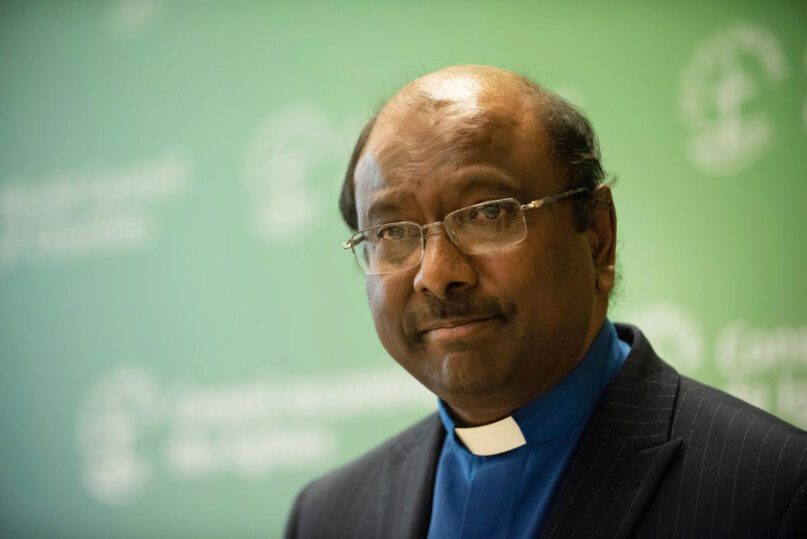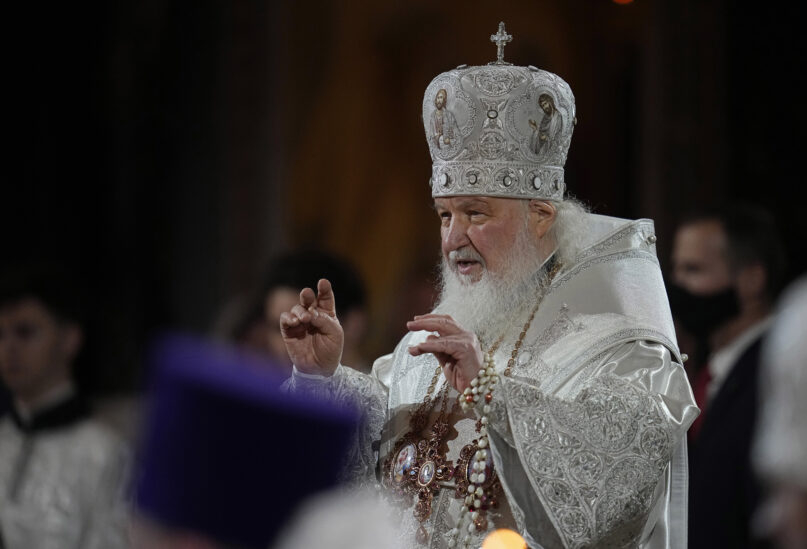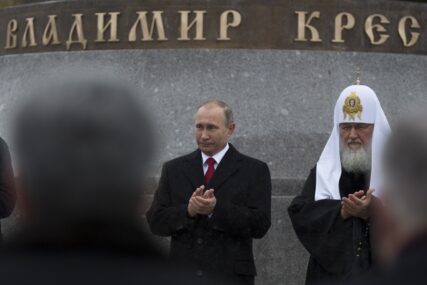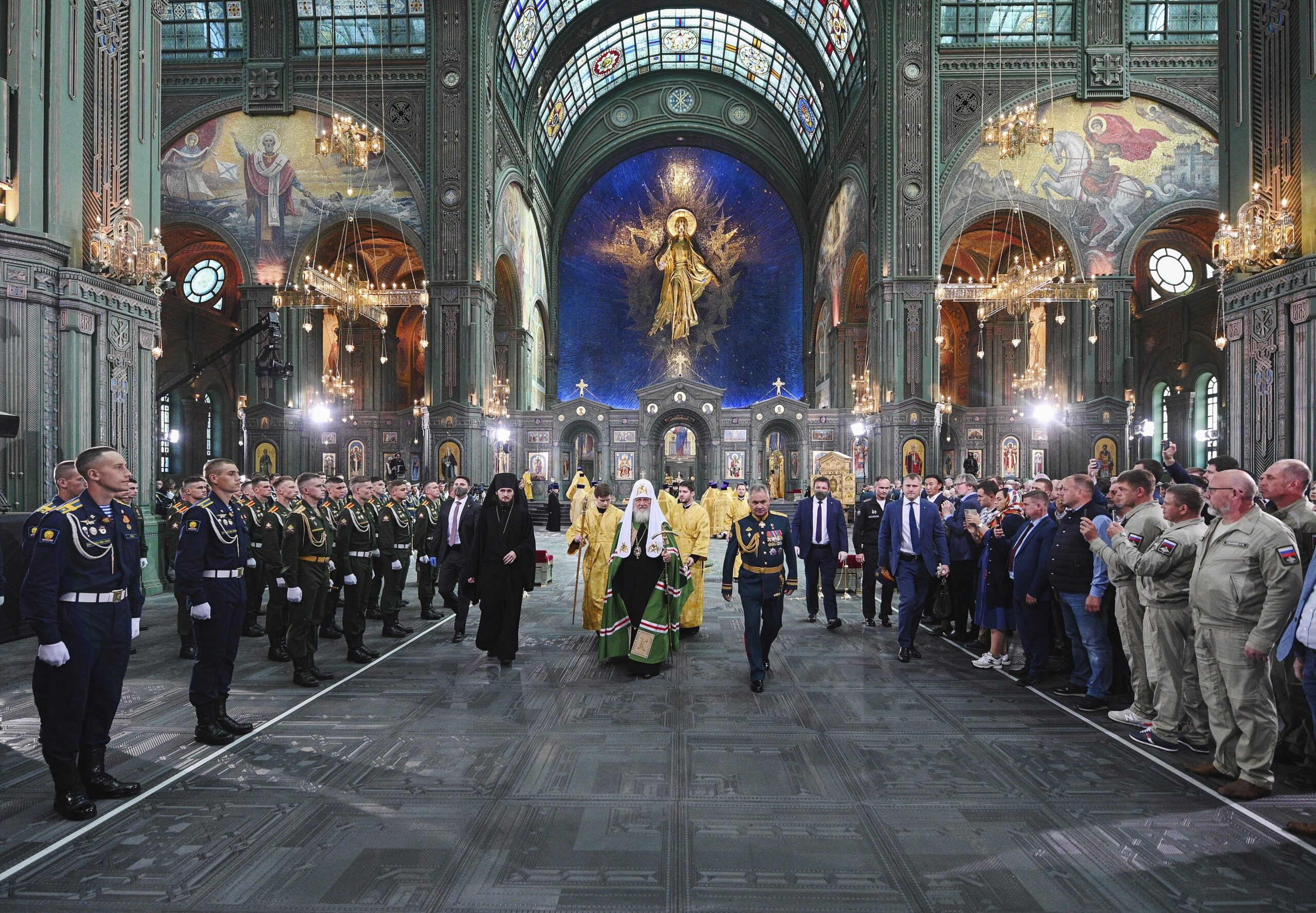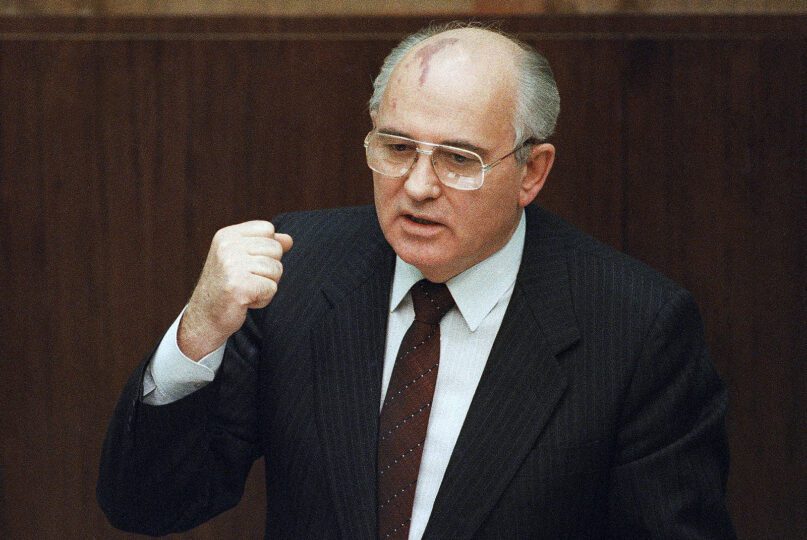The World Council of Churches must act with courage and expel Kirill, Russian Orthodox Church
Supporters of the effort to oust Kirill from the WCC believe he has disqualified the ecclesial entity he embodies by effectively endorsing Putin's military campaign.
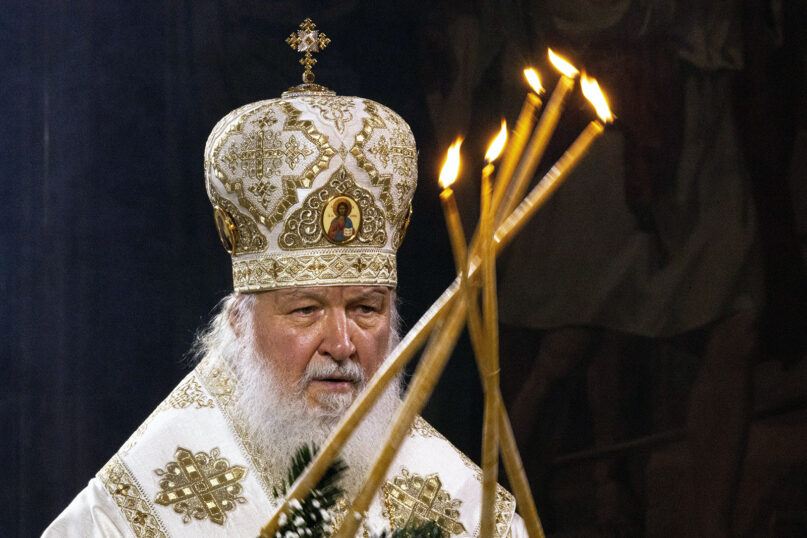
(RNS) — A growing number of global Christian leaders, including Pope Francis, Orthodox Patriarch Bartholomew of Constantinople and General Secretary Ioan Sauca of the World Council of Churches, has appealed to the leader of the Russian Orthodox Church, Patriarch Kirill, to use his office to persuade Vladimir Putin to end his war against the Ukrainian people.
However, because Kirill hasn’t followed their counsel, some are going a step further, urging the WCC to expel Kirill’s Moscow-based church body for acting contrary to the WCC mission of fostering Christian unity, peace and justice.
Kirill was initially silent as Putin’s military campaign developed on the Russian side. However, once forces crossed over into Ukraine, Kirill seemed to justify the action blatantly. In a Feb. 27 sermon, he said the move was due to the West imposing secularism on Ukraine, including a requirement for the country to accept “gay pride parades.” He also dubbed the conflict “metaphysical” in nature, arguably turning it into a religious war.
RELATED: How Putin’s invasion became a holy war for Russia
Then, in a March 10 letter responding to the WCC’s Sauca, the Russian Prelate seemed to scold him, writing, “As you know, this conflict did not start today. It is my firm belief that its initiators are not the peoples of Russia and Ukraine, who came from one Kievan baptismal font, are united by common faith, common saints and prayers, and share common historical fate. The origins of the confrontation lie in the relationships between the West and Russia.”
Kirill’s blame-shifting didn’t end with Europe and North America, however. He also faulted Bartholomew of Constantinople for granting Ukrainian Orthodox churches independence from Moscow, calling it a “schism” that has “taken its toll on the Ukrainian Orthodox Church.”
With distress about Kirill growing within the WCC ranks, Sauca, an Orthodox priest and acting general secretary, had written the Prelate on March 2, urging him “to intervene and mediate with the authorities to stop this war, the bloodshed and the suffering, and to make efforts to bring peace through dialogue and negotiations.”
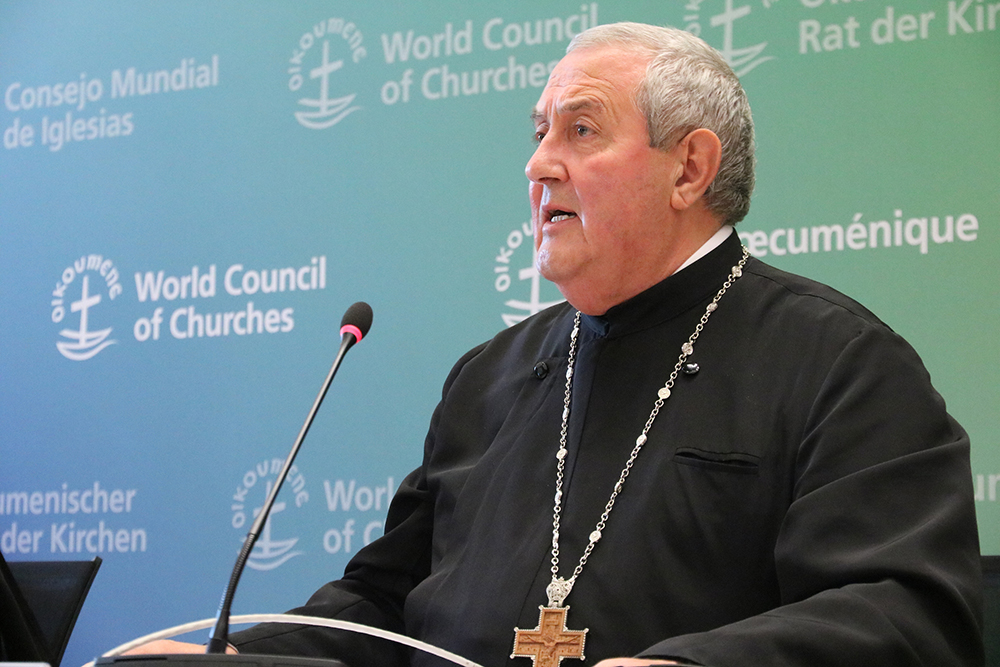
Ioan Sauca, general secretary of the World Council of Churches, on June 24, 2021. Photo by Ivars Kupcis/WCC
After receiving Kirill’s defensive missive in response, the secretary posted a statement appealing for “an immediate end to such indiscriminate attacks, for respect for international humanitarian principles and the God-given human dignity and rights of every human being, and for a ceasefire and negotiations to end this tragic conflict.”
A day later, some 100 U.S. Christian denominational officers, institutional executives, academics and social influencers signed a letter to Kirill. They pled with him to “use your voice and profound influence to call for an end to the hostilities and war in Ukraine and intervene with authorities in your nation to do so.”
RELATED: US Christian leaders ask Kirill to speak out, ‘reconsider’ comments on Ukraine
While these initial communications with the Moscow Patriarchate were essentially congenial, prominent Czech theologian and ecumenical Protestant spokesman Pavel Černý, who, as a college student, lived through the Soviet invasion of his country in 1968, was much stronger. In an essay released to European and North American Christian publications on March 24, Černý decried Kirill’s mix of silence, implicit justification and tacit endorsement regarding Putin’s bloodletting: “If the WCC cares about peace, it must not allow such behavior among its members,” he demanded. “The ROC should not be permitted to continue as a WCC member until it turns away from this false path of religious nationalism.”
In support of Černý’s call for ROC expulsion, The Dietrich Bonhoeffer Institute, based in Washington, D.C., has launched a recruitment effort for help from the heads of WCC member denominations and the organization’s governing authorities. The institute is asking them to press for a vote at the octennial assembly in September terminating — or at the least, indefinitely suspending — the ROC’s membership. It has also posted a petition online that allows anyone to join the chorus of voices speaking to this massive humanitarian-cum-ecclesial crisis. In part, it reads, “Kirill persists in justifying Putin’s aggression by stylizing the invasion as a religious crusade. The scale of human suffering resulting from the unholy compact between Kirill and Putin requires the World Council of Churches (WCC) to take immediate action.”
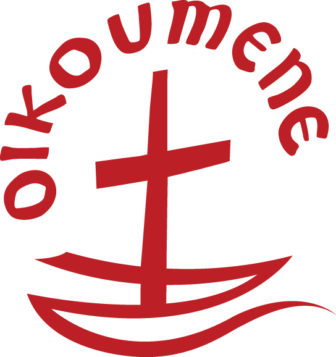
The World Council of Churches (WCC) logo. Courtesy image
There are those who might see expulsion of the ROC as inconsistent with another dimension of WCC’s purpose, which is to mediate differences between religious groups. But Kirill’s use of his religious imprimatur to justify the unprovoked brutal military assault on non-combatants — displacing tens of millions, violently separating families, starving whole cities, grievously wounding small children and killing pregnant women, the disabled and the elderly — are not fine points to ponder, negotiate or find compromise on. Such a scale of terror and irreversible injury constitute Bonhoeffer’s “third possibility” of intervention: to “not just bind up the wounds of the victims beneath the wheel, but to seize the wheel itself.” The extreme consequences of the ROC’s actions or inaction require suspension of WCC norms. Proper procedure does not trump controversial action when the latter is in the interest of preserving human life and flourishing.
There are also more than moral reasons to demand the WCC rescind the ROC’s status. First, there is credible evidence Kirill has a long history of clandestine work for various intelligence-gathering agencies, beginning in the Soviet era. Ejecting him may cut off Putin’s inside source on worldwide religious cooperation and internal messaging on the Ukraine war. Second, the ROC is something of a propaganda tool for Putin. Kirill and his Council of Bishops tend to echo official Kremlin pronouncements, applaud its policies, and, as they have done with Putin’s war against Ukraine, sacralize even the worst government conduct by styling it as a spiritual pursuit. Removing the ROC’s access to the WCC platform would weaken one of Putin’s disinformation pipelines. Finally, there is the matter of military morale. Around 90% of Russian soldiers, sailors and airmen identify as Russian Orthodox faithful. Censoring their supreme spiritual shepherd on a global and ecumenical level could significantly reduce his popularity and credibility, demoralizing the warriors who see themselves as divinely deployed.
Supporters of the effort to oust Kirill from the WCC believe he has disqualified the ecclesial entity he embodies by effectively endorsing Putin’s military campaign to annex Ukraine and failing to oppose the attendant mass violence against a peaceful nation. Not only does Putin’s bloody and mostly Christian-on-Christian conflict subvert the WCC’s mission statement, but it stands in stark contradiction to and rejection of Jesus’ high priestly prayer to his heavenly Father, “that they may be one as we are one” (John 17:11b).
Given Patriarch Kirill’s aiding and abetting of war crimes perpetrated by Russian forces in Ukraine, the World Council of Churches must act with moral courage, ethical responsibility and spiritual integrity and remove the Moscow Patriarchate of the Russian Orthodox Church from its membership.
(Rev. Rob Schenck, D.Min. is president of the Dietrich Bonhoeffer Institute in Washington, D.C., administrative bishop of the Methodist Evangelical Church USA and author of “Costly Grace: An Evangelical Minister’s Rediscovery of Faith, Hope, and Love” (HarperCollins 2018). The views expressed in this commentary do not necessarily reflect those of Religion News Service.)
